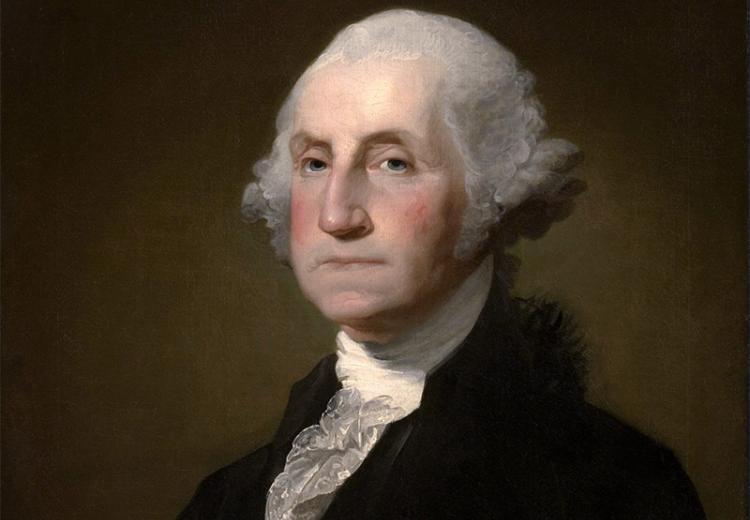What Made George Washington a Good Military Leader?

Portrait of George Washington by Gilbert Stuart.
"...tactics ...is only a small part of generalship. For a general must also be capable of furnishing military equipment and providing supplies for the men; he must be resourceful, active, careful, hardy and quick-witted; he must be both gentle and brutal, at once straightforward and designing, capable of both caution and surprise, lavish and rapacious, generous and mean, skilful in defense and attack; and there are many other qualifications, some natural, some acquired, that are necessary to one who would succeed as a general."
—Attributed to Socrates in The Memorabilia (3.1.5-3.1.6) by Xenophon on the EDSITEment resource The Perseus Digital Library
"I cannot insist too strongly how I was surprised by the American Army. It is truly incredible that troops almost naked, poorly paid, and composed of old men and children and Negroes should behave so well on the march and under fire."
—Attributed to a French Officer in George Washington: Life Before the Presidency on the EDSITEment-reviewed website The American President
George Washington's early military career (1754-1758)—during the Seven Years' War—was not uniformly successful. In his first battle, he and his men were ambushed and forced to surrender Fort Necessity on the Pennsylvania frontier. Washington's reputation for leadership and courage was based on his actions in another defeat at the hands of the French. In that battle, at Fort Duquesne (1755, often called the "Battle of the Wilderness" or "Braddock's Defeat"), Washington had two horses shot from under him and eventually had to assume command from the mortally wounded General Edward Braddock. Washington led the surviving British and Colonial soldiers on a successful retreat.
Later (1775-1783), Washington would lead the Patriots to a surprising victory over Great Britain, "…the best-trained, best-equipped fighting force in the Western world. …Although he lost most of his battles with the British, year after year he held his ragtag, hungry army together"—from the EDSITEment resource The American President.
In this unit, students will read the Continental Congress's resolutions granting powers to General Washington; analyze some of Washington's wartime orders, dispatches, and correspondence in terms of his mission and the characteristics of a good general; and study—with frequent reference to primary material—four battles. In the final lesson in the unit, students will take one last measure of Washington. They will examine his words in response to a proposal that he become the head of a military dictatorship and a movement among some disaffected soldiers to circumvent civilian authority.
Guiding Questions
What combination of experience, strategy, and personal characteristics enabled Washington to succeed as a military leader?
How were the responsibilities of the Commander-in-Chief affected by conditions during the Revolutionary War?
Learning Objectives
Evaluate qualities that made George Washington an effective military leader.
Analyze how Washington's military experiences influenced his military leadership.
Analyze the difficulties Washington faced as Commander-in-Chief and evaluate his responses.
Evaluate Washington's response to the Newburgh Conspiracy.
